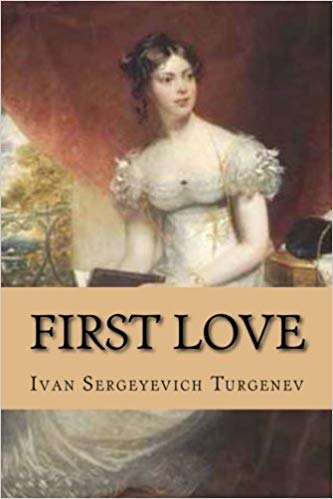
Turgenev Rudin Prezentaciya
Dual Monitor The video card can drive dual monitors. Xfx geforce 9600 gso drivers. This interface is specifically designed with intense graphics applications in mind. This brings stunning graphics capabilities to gaming, geometry, vertex, physics, and pixel shading operations. PCI Express Support The card installs in an available PCI Express slot.
Related links for Ivan S. Turgenev Here is where you find links to related content on this site or other sites, possibly including full books or essays about Ivan. Ivan Turgenev, in full Ivan Sergeyevich Turgenev, (born October 28 [November 9, New Style], 1818, Oryol, Russia—died August 22 [September 3], 1883, Bougival, near Paris, France), Russian novelist, poet, and playwright whose major works include the short-story collection A Sportsman’s Sketches (1852) and the novels Rudin.
Contents • • • • • • • • • • • • • • • • • • • Context [ ] Rudin was written by Turgenev in the immediate aftermath of the, when it became obvious to many educated Russians that reform was needed. The main debate of Turgenev's own generation was that of versus Westernizers. Rudin depicts a typical man of this generation (known as 'the men of forties'), intellectual but ineffective. This interpretation of the superfluous man as someone who possesses great intellectual ability and potential, but is unable to realize them stems from Turgenev's own view of human nature, expressed in his 1860 speech ‘Hamlet and Don Quixote’, where he contrasts egotistical, too deep in reflection to act, and enthusiastic and un-thinking, but active. The main character of the novel, Rudin, is easily identified with Hamlet. Many critics suggest that the image of Rudin was at least partly autobiographical.
Turgenev himself maintained the character was a 'fairly faithful' portrait of the anarchist, whom the author knew well., who knew both men, said in his memoirs that the vacillating Rudin had more in common with the liberal Turgenev than the insurrectionist Bakunin. Rudin is often compared to ’s and ’s.
The latter two are considered to be representations of their generations (‘men of twenties’ and ‘men of thirties’ respectively) as Rudin is considered to be a representation of his generation; the three literary works featuring these characters share many similarities in structure and all three characters are routinely referred to as ‘superfluous men’ (whether the term is applicable to all three has been a subject of scholarly debate). For a long time, Turgenev was unsure of the genre of Rudin, publishing it with a subtitle of ‘’. In 1860, it was published together with two other novels, but in the three editions of Turgenev's Works that followed it was grouped with short stories. In the final, 1880, edition it was again placed at the head of the novels. The theme of the superfluous man in love was further explored in Turgenev's subsequent novels, culminating in Fathers and Sons. Main characters [ ] Dmitrii Nikolaevich Rudin [ ].
Rudin's first appearance at Lasunskaya's, by Dmitry Kardovsky The main protagonist of the novel. Rudin is a well-educated, intellectual and extremely eloquent nobleman. His finances are in a poor state and he is dependent on others for his living. His father was a poor member of the and died when Rudin was still very young. He was brought up by his mother who spent all the money she had on him, and was educated at and abroad in Germany, at and (Turgenev himself studied in ). When he first appears in the novel, he is described as follows: “A man of about thirty-five [] of a tall, somewhat stooping figure, with crisp curly hair and swarthy complexion, an irregular but expressive and intelligent face.[] His clothes were not new, and were somewhat small, as though he had outgrown them.” In the course of the novel he lives at Dar’ya Mikhailovna's estate and falls in love with her daughter, Natalya.
This love is the main conflict of the novel. His eloquence earns him the respect of the estate's inhabitants, but several other characters display a strong dislike of him, and during the course of the novel it becomes apparent that he is “almost a Titan in word and a pigmy in deed” — that is, despite his eloquence he cannot accomplish what he talks of. Natal’ya Alekseevna Lasunskaya [ ] Also referred to as Natasha. Natasha is a seventeen-year-old daughter of Dar’ya Mikhailovna. She is observant, well-read and intelligent, but also quite secretive. While her mother thinks of her as a good-natured and well-mannered girl, she is not of a high opinion about her intelligence, and quite wrongly. She also thinks Natasha is ‘cold’, emotionless, but in the beginning of Chapter Five we are told by the narrator that “Her feelings were strong and deep, but reserved; even as a child she seldom cried, and now she seldom even sighed and only grew slightly pale when anything distressed her.” She engages in intellectual conversations with Rudin (which are not discouraged by her mother because she thinks that these conversations “improve her mind”); Natasha thinks highly of Rudin, who confides to her his ideas and “privately gives her books”, and soon falls in love with him. Vosstanovlenie fleshki toshiba 8gb.